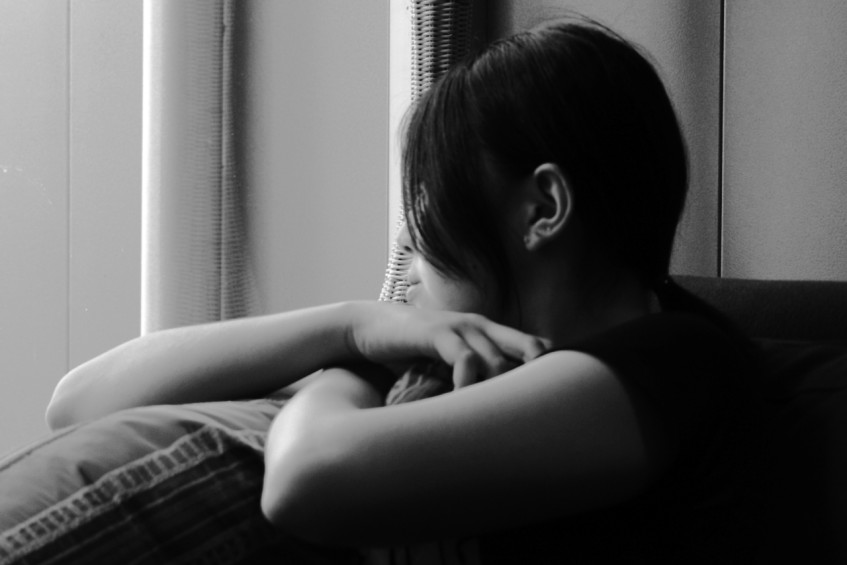2016 ARCHBISHOP’S CHRISTMAS APPEAL FOR LifeLink: Sense of community offers solid support for people with mental illness

Feeling connected to other people is becoming somewhat of a lost art in today’s society, with loneliness still being highly reported, despite the rise of social media, and this can often exacerbate the symptoms of depression and other mental illnesses. Photo: Sourced
By Caroline Smith
Feeling connected to other people is becoming somewhat of a lost art in today’s society.
Despite technological advances that allow us to encounter others around the world through social media, loneliness and isolation are still highly reported, and can increase the effects of depression and other mental illnesses.
Margie – who lives in the eastern suburbs of Perth – experienced the latter, as she began to notice symptoms of anxiety, paranoia and depression while living with her adult son.
“I got depression living with him, I used to get paranoia and hallucinations,” she said.
“My daughter ended up ringing up Armadale Clinic and told them that I wasn’t right, and my son was very worried about me too cause I took off one night and didn’t come back until very late.
“After that, he didn’t want me there. So they took me to Armadale Hospital – I was there for a while, then my daughter found another place for me to live.”
Before moving in with her son, Margie had lived on her own for a number of years, after her marriage broke up because her husband wanted to live in the country, where he was originally from.
“I wanted to be with my grandchildren and children, I didn’t want to be in the country,” she said.
“That added to the breakup of our marriage because we spent so much time apart that there was nothing left in the marriage. But I didn’t like being isolated and alone: the grandkids were starting to grow up, they were at school so I didn’t see them as much as I did before.”
Margie said changes in her family left her feeling increasingly alone.
“I used to spend a lot of time with my grandchildren when they were little, and I used to do everything for them. But as they grow up, they grow away from you, go to school, (and) have their own lives,” she said.
“And you can be isolated from everybody, you know. I had my little dog, she was my consolation, my companion.”
During her time of crisis, she found it difficult to undertake day-to-day activities, as her illness would get in the way.
“I was paranoid, hallucinating and having dreams. If it was time for me to go out and do shopping, I didn’t want to go out,” Margie said.
“And when I was driving around, or in the shops I was paranoid. I was later diagnosed with mild schizophrenia and mild depression.”
Following her stay at Armadale Hospital, she found a home at Emmaus Community, based in Queens Park, which provides long-term accommodation to people experiencing mental illness. Community residents take part in shared activities, including parties for birthdays and Christmas, art workshops and daytrips – and Margie said this interaction had improved her mental health significantly.
“You have somebody to talk to here. You always have somebody to go to, whereas when you’re on your own, you have nobody,” she said.
Another Emmaus resident, named Dave, shared a similar story, saying that isolation had exacerbated a long-standing depressive condition which he’d had since he was 18.
“It’s been on and off, and it got worse in the last few years, I suppose alcohol and other things contributed,” he said.
“It got even worse a few years ago – I think about three years ago now. I spent a really long time in my room – just stayed there all day.
“It started when I broke up with my girlfriend and everything crashed. It started to get dangerous – I had to get off the alcohol and everything, because suicide and other thoughts had crossed my mind.”
Since joining the community, Dave said his symptoms had improved, and he felt able to engage more with others.
“When I came here it was a good thing – and now I come out of my room,” he said.
“I don’t lock myself in, I spend time with other people. I don’t think I could live by myself – there’s no way.”
Bentley Health Service Psychiatric consultant Dr Michael Tielman – who supports residents at Emmaus – agreed that greater interaction with others could have a healing effect, particularly on those dealing with depression.
“The tendency for people who are depressed is to withdraw. While they are more isolated, they become more and more negative and they can’t test reality with others, they have negative thoughts which they perceive as the reality,” he said.
“We are human social beings and a social system around you is likely to be protective no matter what condition you have.”
LifeLink agencies such as Emmaus Community reach out to help more than 34,000 Western Australians in need each year, through the provision of accommodation, food, clothing, emergency assistance, counselling, and the protection of women and children escaping domestic violence and abuse.
The Archbishop’s Christmas Appeal for LifeLink was officially launched in parishes throughout the Archdiocese on the weekend of 19-20 November 2016.
This is the only appeal conducted in parishes each year to help support welfare delivery in the Archdiocese of Perth.
To help ‘heal the wounds and warm the hearts’ of people in need this Christmas, you can donate securely online at www.lifelink.com.au.
